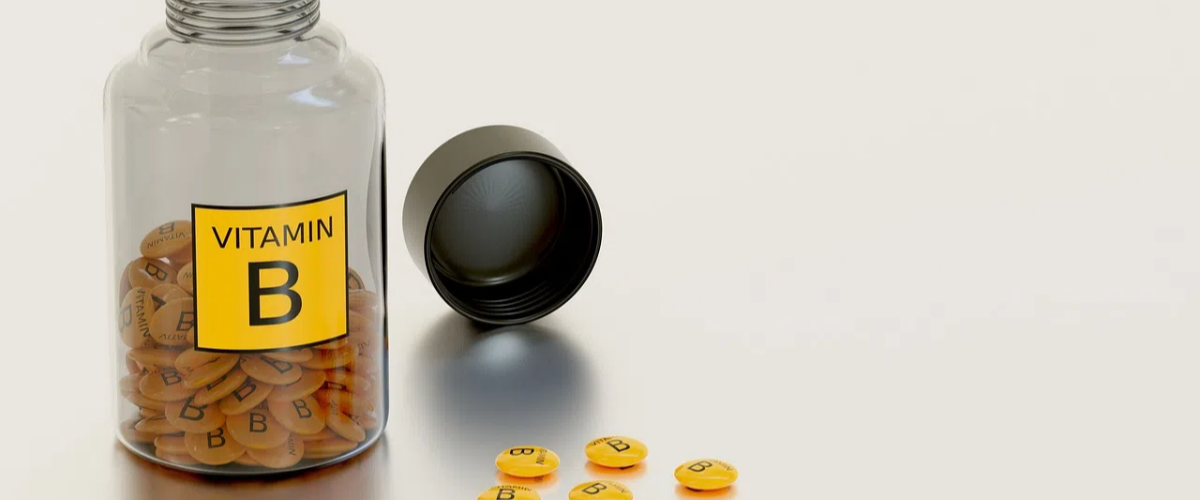For many people, managing high cholesterol levels is a major concern. High cholesterol increases your risk of heart disease, stroke, and other serious health problems. While lifestyle changes such as diet and exercise can help lower cholesterol, sometimes additional interventions are needed. One such intervention is the use of niacin, a form of vitamin B3 that has been shown to have a positive impact on cholesterol levels. It is found in a variety of foods, including meat, fish, and poultry, as well as fortified cereals and breads. In addition to its role in energy metabolism, niacin has been shown to have a positive impact on cholesterol levels.
Niacin, also known as vitamin B3, also known as niacin vitamin and nicotinamide, is a water-soluble vitamin that plays a vital role in the body's metabolism. It is essential for converting carbohydrates, fats and proteins into energy and also helps maintain healthy skin, nervous and digestive systems.
Niacin is found in a variety of foods, including meat, fish, nuts and whole grains. It can also be synthesized by the body from the amino acid tryptophan, although this process is not sufficient to meet the body's daily niacin needs.
Niacin comes in two forms commonly found in foods and supplements: niacinamide and niacin. Both forms are converted in the body to the active coenzyme form of niacin, which is then used in various metabolic reactions.
Niacin has been shown to increase levels of HDL (good) cholesterol while lowering LDL (bad) cholesterol and triglycerides. This makes it an important nutrient for maintaining cardiovascular health and reducing the risk of heart disease.
In addition to its role in cholesterol metabolism, niacin is also involved in the regulation of blood sugar levels. It helps improve insulin sensitivity and reduce inflammation.
It is essential for the production of NAD (nicotinamide adenine dinucleotide) and NADP (nicotinamide adenine dinucleotide phosphate), which are coenzymes involved in various cellular processes, including energy production and antioxidant defense .

First, niacin is important for our cardiovascular health. It helps lower levels of LDL, or "bad" cholesterol, while increasing levels of HDL, or "good" cholesterol. This can have a positive impact on our heart health and reduce the risk of cardiovascular diseases such as heart disease and stroke. Additionally, niacin has been shown to lower triglyceride levels, which is also good for our heart health.
Additionally, niacin plays a key role in energy production in the body. It is involved in the process of converting carbohydrates into glucose, the main source of energy for our cells. This helps combat feelings of fatigue and improves overall energy levels, making niacin an important nutrient for maintaining energy and endurance.
Another important benefit of niacin is its role in supporting a healthy nervous system. It is involved in the production of neurotransmitters, chemicals that help transmit signals between nerve cells. This can have a positive impact on our mood, cognitive function, and overall mental health.
Niacin also has antioxidant properties that help fight oxidative stress and reduce inflammation in the body. This can have a positive impact on our overall health and may help reduce the risk of chronic diseases such as cancer and diabetes. Additionally, niacin has been shown to have a positive impact on skin health, helping to reduce the appearance of acne and promote a clear, healthy complexion.
Additionally, niacin is important for the proper functioning of the digestive system. It helps support the production of digestive enzymes, which are essential for breaking down food and absorbing nutrients. This can have a positive impact on our overall digestive health and may help relieve symptoms such as indigestion and bloating.
In addition to these benefits, niacin has been shown to have a positive effect on insulin sensitivity, which is important for regulating blood sugar levels and reducing the risk of diabetes. It also plays a role in supporting healthy joint function and may help reduce symptoms of arthritis and other inflammation.

Niacin is considered an important option for helping lower cholesterol, and numerous studies have shown that niacin can effectively reduce levels of LDL cholesterol, commonly known as "bad" cholesterol. It has also been shown to increase levels of HDL cholesterol (often called "good" cholesterol). But how does niacin achieve these effects?
One of the ways niacin helps lower cholesterol is by inhibiting the liver's production of very-low-density lipoprotein cholesterol, a precursor to low-density lipoprotein cholesterol. This means the liver produces less LDL cholesterol, resulting in lower LDL cholesterol levels in the blood. Niacin also helps increase the activity of lipoprotein lipase, an enzyme that helps break down triglycerides (another type of fat in the blood). Niacin indirectly reduces LDL cholesterol levels by reducing VLDL and triglyceride levels.
Niacin can also increase HDL cholesterol levels. HDL cholesterol helps remove LDL cholesterol from the blood, transporting it to the liver where it can be broken down and eliminated from the body. This is why HDL cholesterol is often called "good" cholesterol because it helps prevent the buildup of plaque in the arteries, which can lead to heart disease.
In addition to its effects on cholesterol levels, niacin has been found to have other cardiovascular benefits. It can help reduce inflammation in the arteries, an important factor in the development of atherosclerosis, or hardening of the arteries. Niacin has also been shown to improve the function of endothelial cells (the lining of blood vessels), helping to improve blood flow and reduce the risk of blood clots. In addition, niacin can balance blood sugar levels and help control diabetes.

Niacin, also known as vitamin B3, is an essential nutrient. It is important for a variety of body functions, including metabolism, nerve function, and cellular energy production. Incorporating niacin-rich foods into your diet is relatively easy because there are a variety of foods that contain large amounts of this important nutrient. Some foods rich in niacin include:
1. Chicken
Chicken is a great source of niacin and lean protein. Whether you prefer grilled, baked, or grilled chicken, incorporating this lean meat into your diet is a great way to increase your niacin intake.
2. Tuna
Not only is tuna a great source of niacin, but it's also rich in Omega-3 fatty acids, which are important for heart health. Adding tuna to salads, sandwiches, or sushi rolls is a smart way to increase your niacin intake.
3. Peanuts
Peanuts are a delicious and convenient snack that are rich in niacin. Whether you prefer peanuts in raw, roasted or peanut butter form, adding peanuts to your diet is an easy way to get more niacin.
4. Mushrooms
Not only are mushrooms a great source of niacin, they are also low in calories and high in antioxidants. Adding mushrooms to soups, salads, or stir-fries is a great way to get more niacin into your meals.
5. Green beans
Not only are green peas a good source of niacin, but they are also rich in fiber, protein, and other essential vitamins and minerals. Adding green peas to your meals is a great way to increase your niacin intake while increasing your overall nutrient intake.
6. Sunflower seeds
Sunflower seeds are a nutrient-dense snack packed with niacin, vitamin E, magnesium and other important nutrients. Snacking on sunflower seeds between meals is a great way to increase your niacin intake while satisfying hunger pangs.
In addition to these niacin-rich foods, there are many other sources of niacin you can incorporate into your diet, such as salmon, avocados, and whole grains. By including a variety of these foods in your meals and snacks, you can ensure you're getting adequate amounts of niacin to support your overall health and well-being.

Niacin, also known as vitamin B3, is an essential nutrient that plays a vital role in maintaining health. It is involved in various body processes, including metabolism, DNA repair, and hormone synthesis. Although niacin occurs naturally in many foods, some people may need additional supplements to meet their daily needs.
When considering taking niacin supplements, it's important to make an informed choice for your health. There are several key factors to consider when deciding whether niacin supplements are right for you
First, it’s important to understand the potential benefits of niacin supplementation. Niacin has been studied for its potential to improve cholesterol levels, reduce the risk of cardiovascular disease, and even enhance brain function. Additionally, niacin has anti-inflammatory properties that may help reduce the risk of certain chronic diseases.
However, it is also important to consider the potential risks and side effects of niacin supplementation, and it is important to discuss your plan to take niacin supplements with your healthcare provider to ensure it is safe and right for you.
Additionally, it’s important to choose a high-quality niacin supplement from a reputable source. Not all supplements are created equal, so it's important to choose a quality product from a reputable brand, preferably produced in a facility that adheres to strict quality control standards. Additionally, you may want to consider looking for supplements that have been third-party tested, as this ensures that the potency and purity of the product have been independently verified. This can help ensure you are getting a safe and effective product.
When choosing a niacin supplement, it is also important to consider the form of niacin used in the supplement.
1. Niacin: This is the most common form of niacin found in supplements. It is known for its ability to support cardiovascular health by helping to lower cholesterol levels and improve blood circulation. However, some people may experience skin flushing or temporary redness as a side effect of taking niacin.
2. Niacinamide: Also known as niacinamide, this form of niacin is popular for its potential skin benefits. It is often used in skin care products to help improve the appearance of fine lines, wrinkles, and acne. Niacinamide is also beneficial in supporting overall immune function and cognitive health.
3. Inositol hexanicotinate: This is a combination of niacin and myo-inositol, a sugar alcohol. Inositol hexanicotinate is commonly used to support a healthy circulatory system and may help maintain healthy cholesterol levels.
Suzhou Myland Pharm & Nutrition Inc. has been engaged in the nutritional supplement business since 1992. It is the first company in China to develop and commercialize grape seed extract.
With 30 years of experience and driven by high technology and a highly optimized R&D strategy, the company has developed a range of competitive products and become an innovative life science supplement, custom synthesis and manufacturing services company.
In addition, the company is also an FDA-registered manufacturer, ensuring human health with stable quality and sustainable growth. The company's R&D resources and production facilities and analytical instruments are modern and multifunctional, and are capable of producing chemicals on a milligram to ton scale in compliance with ISO 9001 standards and GMP manufacturing practices.
Q: What is niacin and how does it work to lower cholesterol levels?
A: Niacin, also known as vitamin B3, is a water-soluble vitamin that has been shown to lower LDL (bad) cholesterol and triglyceride levels while increasing HDL (good) cholesterol levels. It works by inhibiting the liver's production of cholesterol and triglycerides.
Q: Is niacin effective in lowering cholesterol levels?
A: Yes, niacin has been proven to be effective in lowering cholesterol levels, particularly LDL cholesterol and triglycerides. It can also raise HDL cholesterol levels, which is beneficial for heart health.
Q: How much niacin should be taken to lower cholesterol levels?
A: The appropriate dosage of niacin for lowering cholesterol levels varies depending on individual factors such as age, gender, and overall health. It is important to work with a healthcare professional to determine the right dosage for you.
Disclaimer: This article is for general information only and should not be construed as any medical advice. Some of the blog post information comes from the Internet and is not professional. This website is only responsible for sorting, formatting and editing articles. The purpose of conveying more information does not mean that you agree with its views or confirm the authenticity of its content. Always consult a health care professional before using any supplements or making changes to your health care regimen.
Post time: Jan-02-2024





